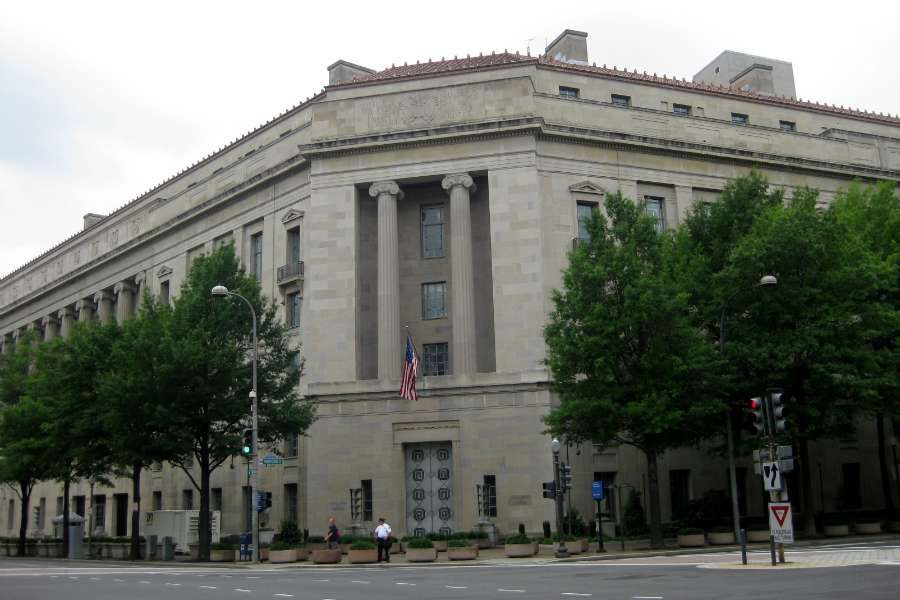After the US Department of Justice did not drop its appeal of a contraceptive mandate lawsuit by the Catholic Benefits Association on Monday, the group expressed its disappointment.
“It is disappointing that that process hasn’t moved forward. It does seem to be stalled currently,” Douglas Wilson, CEO of the Catholic Benefits Association, told CNA Tuesday. Catholic Benefits Association is comprised of over 700 Catholic employers, including dioceses, schools, hospitals, and social service agencies. The group helps the employers provide quality Catholic health care in accordance with Church teaching.
The association had previously asked the Department of Health and Human Services and the Department of Justice to drop the government’s appeal of their lawsuit against the HHS contraceptive mandate. The Tenth U.S. Circuit Court of Appeals gave the government until July 31 to reply to CBA’s request.
In a July 27 statement, Wilson said that “President Trump took an important first step by instructing these agencies to change their mandate and to protect religious liberty.” “HHS and DOJ need to follow President Trump's lead by dropping their appeal by July 31,” he said.
CBA had filed a motion in court asking either for “summary affirmance” of its claim that the HHS contraceptive mandate was illegal, or for the administration to drop its appeal of the case. The Department of Justice was given until July 31 by the Tenth Circuit Court to reply, and said on Monday that it was still working on a final rule on exemptions from the contraceptive mandate. Wilson said on Tuesday that the CBA wants the administration “to get those interim regulations filed and promulgated as soon as possible.”
The Catholic Benefits Association is one of dozens of non-profit organizations which sued the Department of Health and Human Services during the Obama administration over the contraceptive mandate and its “accommodation” offered to objecting entities.
While the mandate ordered employers to provide cost-free coverage in their employee health plans for contraceptives, sterilizations, and abortion-inducing drugs, the government offered an “accommodation” to non-profits that conscientiously objected to complying with the mandate. They would notify the government or the third party administrator of their plan of their objection, and their administrator would then provide the coverage to the employees.
Many non-profits, including the Archdiocese of Washington and the Little Sisters of the Poor, claimed that this “accommodation” still forced them to cooperate with morally-objectionable practices of providing access to contraceptives.
Last year, in the middle of the contraceptive mandate case Zubik v. Burwell, the Supreme Court sent the case back to the lower courts and directed both parties to come to an agreement where the interests of the government — providing coverage for contraceptives and the other drugs and procedures — were respected, while the religious liberty of objecting parties was also respected. However, even under the Trump administration the Department of Justice had not stopped its appeals of the HHS mandate cases.
On May 4, however, President Donald Trump announced that, as part of his religious freedom executive order, the objecting religious non-profits would receive relief from the mandate. He told the non-profits and the nuns present from the Little Sisters of the Poor that “your long ordeal will soon be over” and that “we are ending the attacks on your religious freedom.”
HHS Secretary Tom Price said the agency “will be taking action in short order to follow the President’s instruction to safeguard the deeply held religious beliefs of Americans who provide health insurance to their employees.”
A draft interim final rule from the HHS was leaked in May, which reportedly carved out religious exemptions from the mandate for the objecting non-profits that were more broad than the narrow exemptions determined by the Obama administration, which applied to churches and very few other religious groups.
Becket, a religious freedom law firm defending many of the objectors to the HHS mandate, said the language in the draft would offer sufficient protections from the mandate for the religious groups. In the draft, the government also admitted in the draft that the contraceptive mandate did not advance a compelling governmental interest, which is one of the necessary qualifications for a law that infringes upon someone’s sincere religious beliefs to succeed the test, under the Religious Freedom Restoration Act. However, the administration’s rule has not yet been released.
The Catholic Benefits Association finally filed a motion in court asking the government to drop its appeal of the HHS mandate case, and citing the government’s admission in the draft rule that the mandate did not further a “compelling governmental interest.” The court gave the government a July 31 deadline to reply to the motion.
On Monday, the Department of Justice replied that the administration was still in the process of crafting the final rule for religious non-profits and the contraceptive mandate, and asked the court to suspend the motion until the process was finished. “As we explained in our status report of July 14, 2017, the new Administration has initiated the rulemaking process to amend the regulations at issue here,” the agency said on Monday. “That process has not, however, reached conclusion. This Court has properly maintained abeyances in related cases while the rulemaking process proceeds, and it should do the same here.”
In response, Wilson said that “the Tenth Circuit made clear that it wanted the government’s response to address ‘with specificity’ the arguments in our motion, which of course they have not done to date.” The agency had initially requested from CBA an extension to reply to the motion, which CBA would have opposed, Wilson said.
However, later on Monday, the agency instead filed a short brief in response to the motion. “We’re disappointed in that all of the facts come to our side of the equation, they favor our argument,” Wilson said. He said that “we’re very heartened that the response that they filed is in our opinion lacking in substance, and we feel hopeful that the court’s going to see it the same way.”

